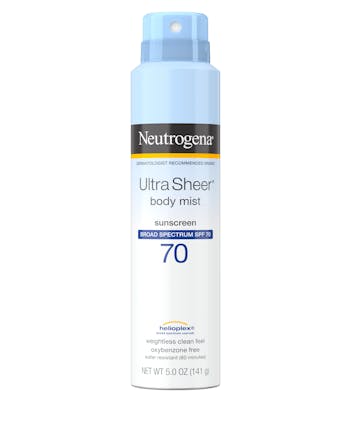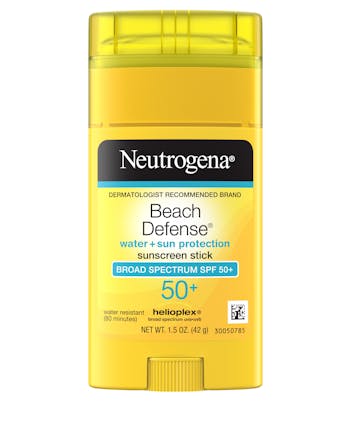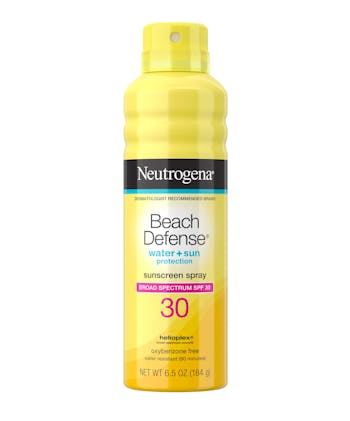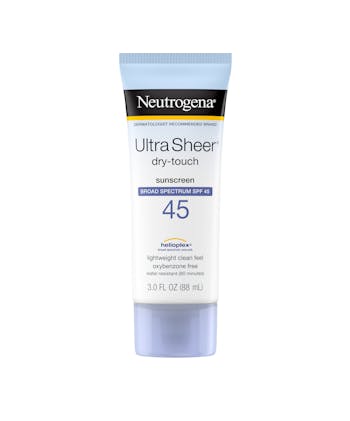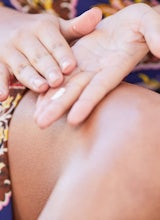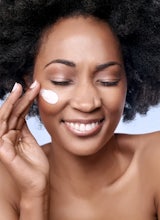Putting on sunscreen every single day— cloudy afternoons and time spent indoors included! — is one of the best things you can do for your complexion. So, it's a question that's central to the state of our skin: Does sunscreen expire? What happens if you do use an expired sunscreen?
Here's how long that bottle of SPF can sit in your bag or cupboard without losing its purpose.
Does Sunscreen Actually Expire?
A resounding yes: Sunscreen expires!
Like any other beauty product, your sunscreen will also give up the ghost at some point in time. The FDA mandates that all sunscreens include an expiry date, which is usually stamped on the label or the bottom of the bottle.
This is true unless testing from the manufacturer shows that the product will remain stable for at least three years. Any sunscreen without an expiration date is considered to have expired three years after purchase. It helps to do your own prep work — jot down the date of purchase with a permanent marker on the bottle to help you calculate when to throw it out.
You should also look for the "period after opening" symbol, which states how long you can safely use a product after opening it. This usually looks like a jar with a lid and a number to indicate the number of months it will maintain peak potency.
Can You Use Sunscreen After the Expiration Date?
Practically speaking, it's not like sunscreen suddenly loses all powers and potency the day it hits its expiration date. So, if the choice is between using a sunscreen that expired just a few weeks back and not using one at all, the former is a better choice.
However, only rely on expired sunblock when you're in a pinch, not on the regular. Sunscreen ingredients break down over time, weakening the SPF. For example, if you are applying SPF50, that may not reflect the strength that you're actually getting — and there's no way of telling the difference. So, if you have to use an expired sunscreen, remember to reapply it more frequentlyto maximize SPF protection.
There are more reasons to avoid expired sunscreen. A product past its date can become unstable, which leads to an unequal distribution of the active ingredients. Cue: a higher risk of skin cancer, sunburns and other UV damage. Like all other cosmetic products, sunscreens are also susceptible to bacteria and other germs, especially when the preservatives have degraded. This may lead to acne or even a skin infection.
How Long Does Sunscreen Last After Expiration?
It's impossible to predict how long sunscreen will remain effective after its expiration date. To be on the safer side, check the formula: Any changes are usually good indicators that the product is no longer safe for skin, such as separation, graininess, clumping, pilling, a new color or a weird smell.
In general, the best practice here is simple: Change out your sunscreen with a fresh bottle when you notice it's out of date.
Does Sunscreen Expire If It's Not Open?
Yes, that bottle of SPF can still expire even if it's never been opened. As long as it was manufactured more than three years back, the FDA mandate still applies.
In fact, an unopened bottle that's been lying forgotten in a handbag or in your car may expire even faster because sunscreens deteriorate more quickly when exposed to heat, sunlight or moisture. To get their maximum shelf life, store your bottles in a cool, dark place.
Can I Use One Sunscreen for My Face and Body?
While your face and body can share the same sunscreen, it's not ideal. The skin of the face is thinner, more sensitive and prone to acne, so these sunscreens are usually formulated to be lighter, oil-free and noncomedogenic.
On another practical note, body sunscreens come in bigger, value-sized bottles, whereas facial SPFs come in smaller versions. Since you need so much more sunscreen for the body, downsizing to just a facial sunscreen may not be the most economically feasible choice!
Both face and body sunscreens come in the form of creams, lotions, sprays and sticks.
Whatever your pick, remember: The most effective sunscreen is the one you actually use. Experiment with different formulas until you find your SPF soulmate that caters to your skincare needs. Just give a glance to the expiry timeline, and you'll be ready to slip on your sun shield.



